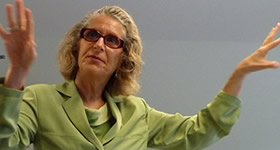[This is a long blog. More like an article. But there are good resources and cool ideas and – as usual – my various musings…. insightful, I hope. So I hope you’ll stick with it – or print it for future reading.]
I recently learned about the California Green Academy. I’d previously met the Founder/Chief Sustainability Officer, Greg Justice, through a masters program at the University of San Francisco.
So off I went to the internet to learn about CalGreen. Lots of stuff pushed my buttons! Here goes…
- Mission: Promoting systems thinking and the Triple Bottom Line in business, energy, and transport.
- Vision: Becoming a premier educational source for sustainability and systems thinking.
I fell in love with systems thinking back in the 1990s. I wrote about systems thinking in the first edition of my first book, Strategic Fund Development: Building Profitable Relationships That Last. And systems thinking is alive and well in each subsequent edition of this book, now up to the 3rdedition.
I’ve never fallen out of this love. Systems thinking is a permanent love. And that an organization actually includes systems thinking in its mission and vision? Wow!!
A few years ago I developed an entire workshop on nonprofit sustainability. My sustainability was definitely NOT just financial. Visit my Free Download Library for my handout.
How about that triple bottom line? Adding social and environmental values to good old economic measures. Social values like fundamental rights, respect for human dignity, democracy, respect, honesty, and…
By the way, when I think “business,” I think for-profit mostly. Or rather, I think that the world thinks for-profit.
For me, life focuses on 3 sectors: Nonprofit sector. For-profit sector. Government. Businesses are for-profit and nonprofit. (Of course, we can also think of the government as business. But I don’t so much.)
I wish the world better understood the nonprofit sector – called the social sectors by Jim Collins in his marvelous monograph Good to Great and the Social Sectors; and, read about civil society in Mike Edwards’ book of the same title. By the way, here’s a must-read book for anyone who works in the nonprofit sector, also by Mike – Small Change: Why Business Won’t Change the World.
I’m pleased to say that the CaliforniaGreenAcademy just added Nonprofit Studies to its Programs. Hey, CalGreen, consider the book suggestions above for your library in Nonprofit Studies – and for those for-profit businesses, too.
More Simone buttons pushed by CalGreen peeps….
Anyone who knows me or reads anything of mine or hears me speak knows how important diversity-equity-social justice are to me. I contacted Greg about the dominance of men within the organization. Greg explained the impressive detailed efforts taken to-date in this 1-year old organization. He talked about the board member search firm CalGreen has just retained.
Now check out these blogs – and the impressive actions described.
- CalGreen’s Board permanently implements the Universal Declaration of Human Rights in governance.
- CalGreen’s Board permanently implements the UN’s Sustainable Development Goals in governance.
When I’m talking governance, I always talk about board composition and diversity and equity and… But I’m now thinking about following the lead of CalGreen and talking about adopting these UN policies.
Okay. That’s it. Farewell for now, Simone
P.S. I’m increasingly pissed about energy and transport and the not- so-good job we do in the US about these 2 items.
P.P.S. I think “chief sustainability officer” is a really good name for the chief executive officer. Of course, we’ve encountered so many CEOs who did/do a damn awfully terrible job of making sure their corporations are sustainable. Remember these corporations: Lehmann Brothers, Enron, Wells Fargo Bank…And on and on still today and over and over…
Okay. This is really farewell!

